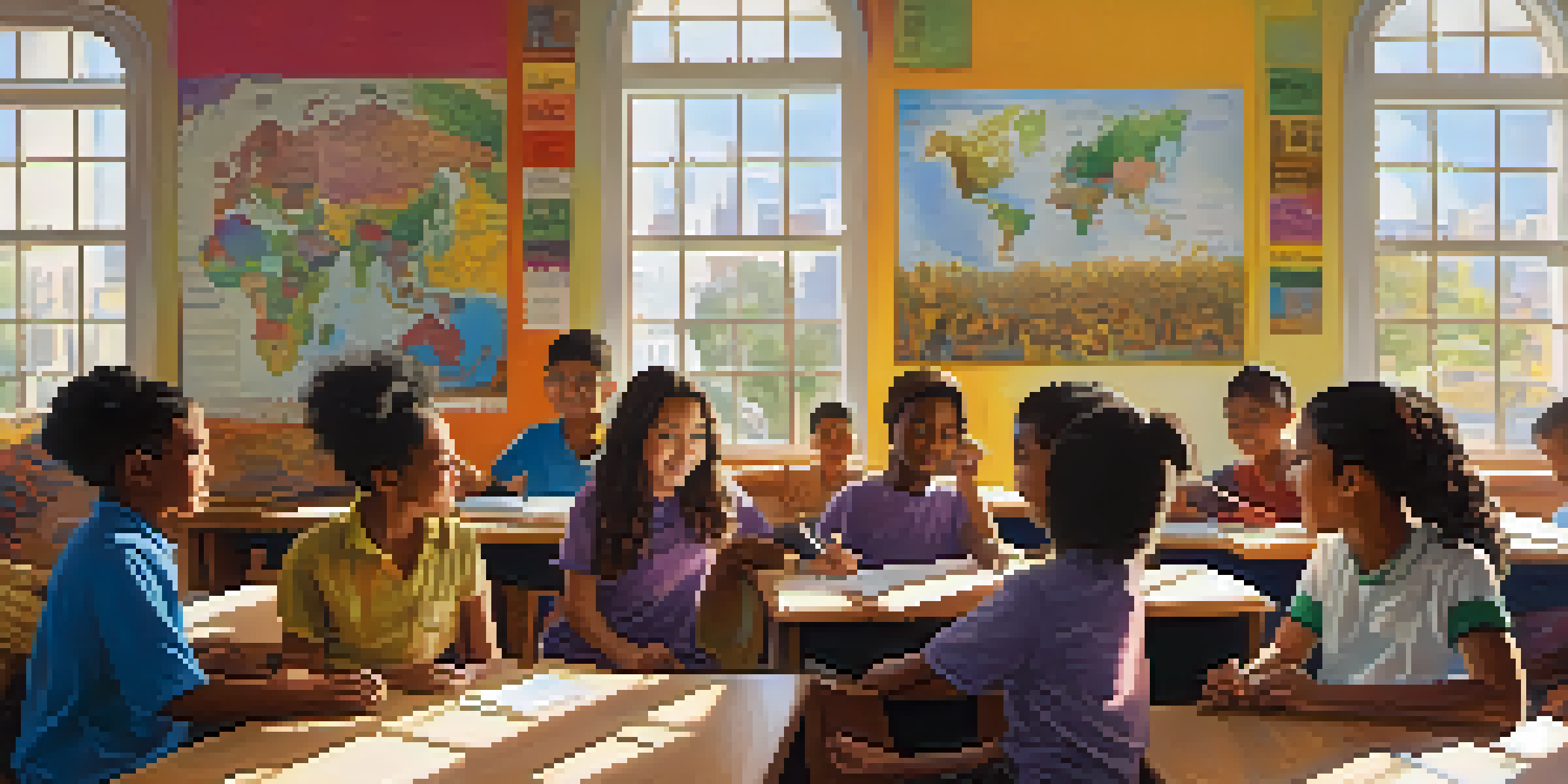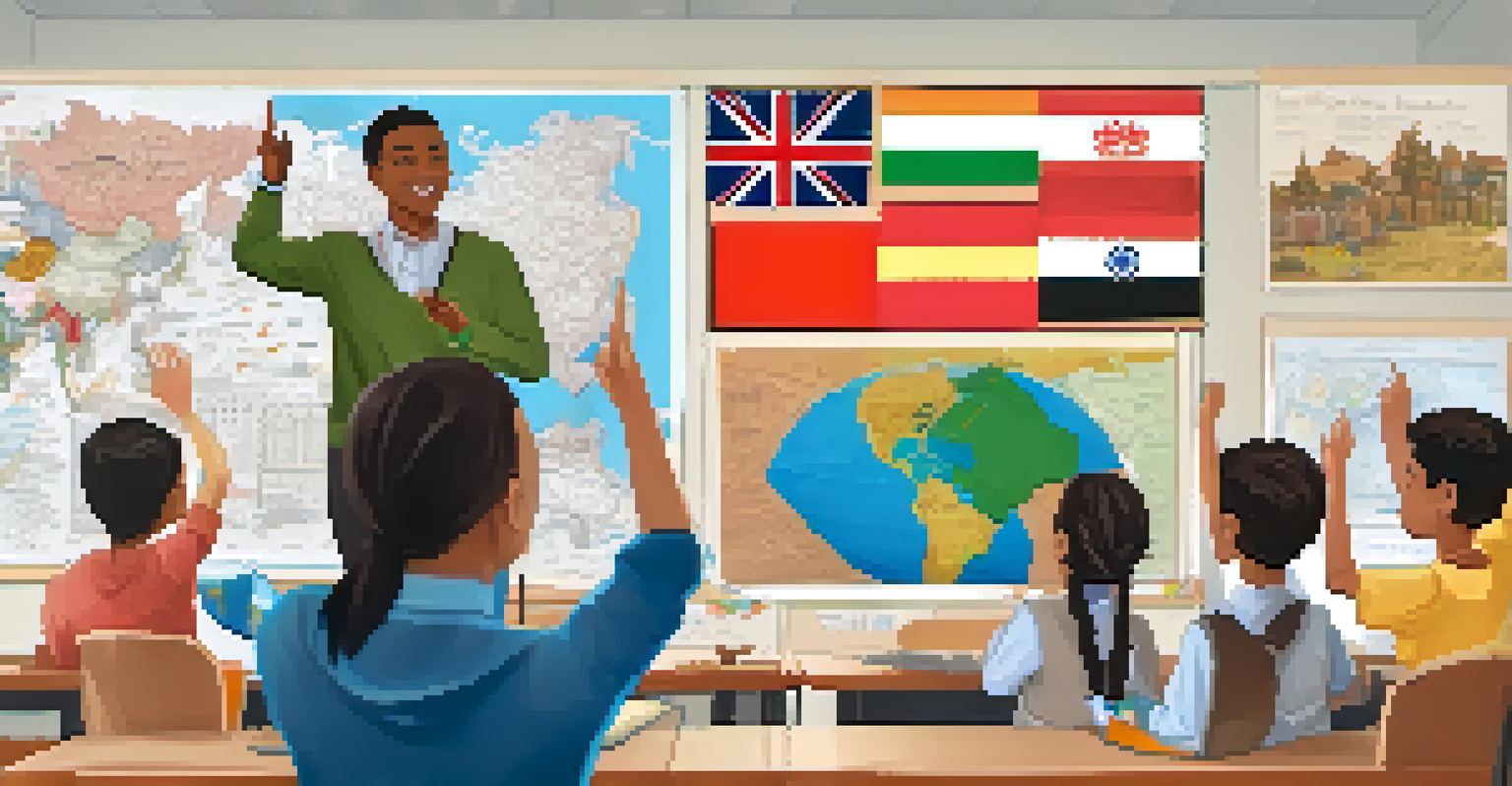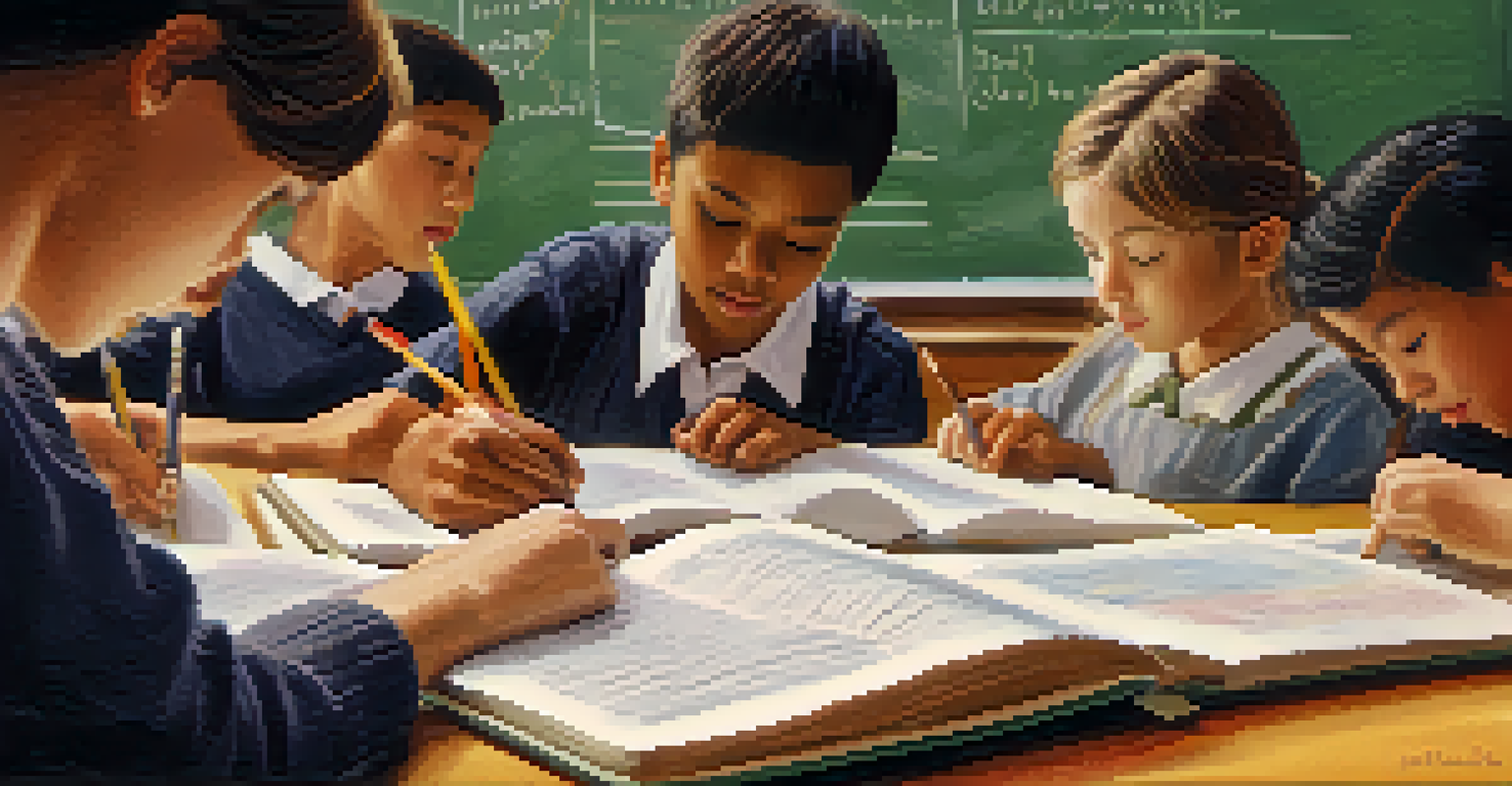The Importance of Cultural Competence for Educators

What is Cultural Competence in Education?
Cultural competence refers to the ability to understand, communicate, and effectively interact with people from diverse cultures. For educators, this means recognizing and appreciating the rich variety of backgrounds that students come from. By being culturally competent, teachers can create a more inclusive and supportive learning environment, fostering better relationships with their students.
The ability to communicate with, understand, and effectively interact with people across cultures is essential in today’s diverse world.
Imagine a classroom where every student feels valued and understood; this is the essence of cultural competence. It requires educators to move beyond simply acknowledging diversity to actively embracing it in their teaching methods and interactions. This shift can enhance the educational experience for everyone involved.
Ultimately, cultural competence equips educators to meet the needs of all students, ensuring that teaching is not a one-size-fits-all approach. By tailoring lessons and communication styles to fit diverse cultural backgrounds, educators can help all students thrive academically and socially.
The Benefits of Cultural Competence for Educators
When educators develop cultural competence, they significantly enhance their teaching effectiveness. Students are more likely to engage when they feel their cultural backgrounds are acknowledged and respected. This engagement can lead to improved academic performance and a more positive classroom atmosphere.

Additionally, culturally competent educators are better equipped to handle conflicts that may arise from misunderstandings or cultural differences. By fostering open dialogue and understanding, educators can help resolve issues peacefully and constructively. This not only benefits individual students but also contributes to a healthier school environment.
Cultural competence enriches education
By embracing diverse cultural backgrounds, educators foster a more inclusive and supportive learning environment.
Moreover, culturally competent educators serve as role models for their students, demonstrating the importance of empathy and respect for differences. When students see their teachers valuing diversity, they are more likely to adopt similar attitudes, promoting a culture of inclusivity within the classroom and beyond.
How Cultural Competence Enhances Student Engagement
Cultural competence plays a crucial role in boosting student engagement. When educators incorporate culturally relevant materials and examples in their lessons, students can connect more deeply with the content. This connection makes learning feel more relevant and meaningful, which can inspire students to participate actively.
Cultural competence is not a destination but a lifelong journey.
Think of a student learning about their own culture's history through engaging projects and discussions; this not only increases interest but also promotes pride in their identity. When educators recognize and celebrate the diverse backgrounds of their students, they create an environment where everyone feels encouraged to share their perspectives.
Ultimately, fostering engagement through cultural competence leads to a more dynamic classroom experience. Students are likely to collaborate better, share ideas openly, and support each other, ultimately enhancing the overall learning journey.
The Role of Bias and Its Impact on Education
Every educator has biases, whether they are conscious or unconscious. These biases can significantly impact how teachers interact with students and deliver instruction. Understanding one's biases is a key part of developing cultural competence, as it allows educators to reflect on their practices and make necessary adjustments.
For example, a teacher who unconsciously favors students from certain backgrounds may unintentionally neglect the needs of others. This can lead to disparities in student performance and feelings of exclusion among those who feel overlooked. Recognizing and addressing these biases is essential for creating an equitable learning environment.
Addressing biases improves equity
Recognizing and addressing personal biases is essential for creating equitable learning experiences for all students.
By acknowledging and working to eliminate biases, educators can ensure that all students receive the support and attention they deserve. This commitment to equity not only benefits individual students but also serves to enrich the entire classroom community.
Strategies for Developing Cultural Competence
Developing cultural competence is an ongoing journey that requires intentional effort. Educators can start by seeking professional development opportunities focused on diversity and inclusion. Workshops, seminars, and online courses can provide valuable insights and strategies for enhancing cultural awareness in the classroom.
Additionally, educators should actively engage with their students' communities. Building relationships with families and local organizations can help teachers understand the cultural contexts in which their students live. This knowledge can inform lesson planning and classroom interactions, making them more relevant and engaging.
Finally, self-reflection is a powerful tool for growth. Educators should regularly assess their own practices and beliefs, seeking feedback from colleagues and students alike. This reflective approach can lead to greater cultural understanding and sensitivity within the classroom.
Incorporating Diverse Perspectives in Curriculum
A culturally competent educator recognizes the need to incorporate diverse perspectives into the curriculum. This can be achieved by including literature, history, and examples from various cultures, allowing students to see their own experiences reflected in the learning material. When students encounter diverse voices, they gain a broader understanding of the world around them.
For instance, rather than solely focusing on Western literature, a teacher might include works from authors of different cultural backgrounds. This not only enriches the curriculum but also validates the experiences of all students, fostering a sense of belonging and relevance.
Lifelong learning enhances teaching
Cultural competence is an ongoing journey that requires continuous education and engagement with diverse communities.
Additionally, encouraging students to share their own cultural stories and experiences can create a more inclusive atmosphere. By allowing students to contribute to the curriculum, educators can foster a collaborative learning environment where everyone feels valued.
Cultural Competence as a Lifelong Learning Journey
Cultural competence is not a destination but a lifelong learning journey for educators. The world is constantly changing, and new cultural dynamics emerge regularly. To stay relevant and effective, educators must remain open to learning about different cultures and adapting their teaching approaches accordingly.
Participating in ongoing professional development, attending cultural events, and engaging with diverse communities are all ways educators can continue to grow in their cultural understanding. This commitment to lifelong learning not only benefits educators but also enhances the learning experience for their students.

Ultimately, when educators embrace cultural competence as a continuous journey, they model the importance of adaptability and open-mindedness for their students. This sets a powerful example, encouraging students to become lifelong learners themselves and fostering a more inclusive society.